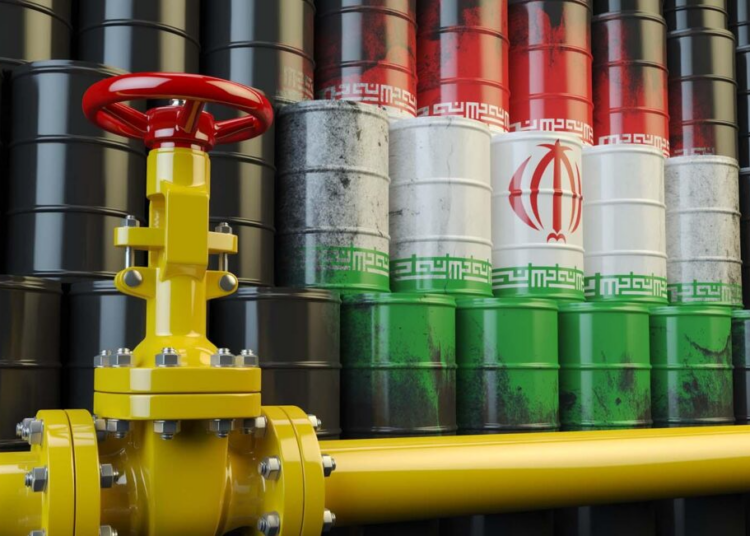As global oil prices fall on the back of declining economic growth, there is a rising fear that the federal government may not be able to meet its revenue projection from oil which is the country’s major funding source.
Nigeria’s premium oil grade, Bonny Light, reportedly dropped to $73.87 per barrel at the weekend from $76.37, recorded last week, indicating a fall of three per cent.
The Federal government had benchmarked the 2023 budget at $75 per barrel and 1.8 million barrels per day, bpd, including condensate, which Nigeria has the capacity to produce between 300,000 – 400,000 barrels per day, bpd.
The drop in price that also affected other crudes was attributed to the global economic slowdown, especially some developed economies that buy commercial oil from Nigeria and other major oil nations.
Although the executive had initial proposed a benchmark of $70 per barrel oil price for the 2023, the National Assembly had reviewed the benchmark price pegging Nigeria’s crude oil benchmark at $75 per barrel in the N21.8 trillion budget
The federal government had also projected a production of 1.8 million barrels per day, bpd, including condensate, which Nigeria has the capacity to produce between 300,000 – 400,000 barrels per day, bpd.
Goldman Sachs in a recent report had disclosed that based on the global economic slowdown, it would not be possible for oil to hit $100 per barrel this year, which it had earlier forecasted, noting that the current poor state of the global economy has already culminated in the collapse of two big banks in the United States.
The report which now expects oil price to hover at $94 per barrel in the coming 12 months, before landing at $97 per barrel in 2024, stated “Oil prices have plunged despite the China demand boom given banking stress, recession fears, and an exodus of investor flows.”
The March 2023 Monthly Oil Market Report, Monthly Oil Market Reports, MOMRs by the Organisation of Petroleum Exporting Countries (OPEC) showed that Nigeria’s oil production rose month on month by 3.8 percent to 1.306 million bpd in February 2023, from 1.258 million bpd recorded in the preceding month of January 2023.
Also, year on year, Nigeria’s oil production increased by 3.8 per cent to 1.306 million bpd in February 2023, from 1.258 million bp/d recorded in the corresponding period of 2022. Nigerian National Petroleum Company (NNPC) Limited said in 2023, Nigeria was working to realise an average of 2.2 million barrels per day (bpd), including condensate.
Speaking in an interview session at the 13th global United Arab Emirate, UAE virtual energy forum, Group Chief Executive of the NNPC, Mele Kyari, while attributing low production to the limited investment of the past, said “in our case, we have a different challenge other than just a lack of investment in the last four to five years.
“There has been no investment in the last four to five years. That is correct. That is true in many other jurisdictions where cash flows do not support the investment. We had a different challenge – security challenge – that became very manifest in early-2022.
we took definite steps to bring back production and this is paying up.
“For instance, in around July, our net crude oil, excluding condensate, came down to around 1 million bpd. That is the lowest ever in the history of our country and our industry. So for us, we see a trajectory of restoring production, including condensate, within the year. Definitely, we believe that we can hit our target of 2.2 million bpd but our OPEC target is 1.8 million bpd, but we know that it is practical to do 2.2 million within 2023.”
Meanwhile, Organization of Petroleum Exporting Countries, (OPEC), is becoming sensitive and restless over perceived market volatility and said it is taking drastic measures to balance oil market as oil prices continued to plunge.
The Organization’s secretary general Haitham Al Ghais and Iraq’s Prime Minister met over the weekend calling for coordinated action among oil exporters globally in order to reduce volatility in the oil market and avoid adverse impacts for consuming countries.
The official spoke during a meeting with Iraqi Prime Minister Mohammed Shia al-Sudani, who joined the call for coordination on oil markets. None of the officials went into detail as to what such coordination could entail.
Earlier this month, the Saudi energy minister said that OPEC+ would maintain its tighter supply plans.
“There are those who continue to think we would adjust the agreement. I say they need to wait until Friday December 29 2023 to demonstrate to them our commitment to the current agreement,” Abdulaziz bin Salman told Energy Intelligence in an interview.
Meanwhile, Iraq’s oil minister said over the weekend that Iraq OPEC’s second-largest producer remains committed to the OPEC+ agreement on production limits.
Hayan Abdel-Ghani, however, added that Iraq was prepared to boost oil production, too, if called upon to do so.
Iraq’s government has plans to increase the country’s oil production capacity substantially from the current rate of around 4.5 million barrels daily. However, the same government has repeatedly stated it is fully behind OPEC and its production adjustment measures.
Outside OPEC, meanwhile, oil executives are warning that the cartel is back in the driving seat for global oil supply and this might mean higher prices down the road.
“I think the people that are in charge now are three countries and they’ll be in charge the next 25 years,” Scott Sheffield, chief executive of Pioneer Natural Resources, said on the sidelines of CERAWeek this month, as quoted by the Financial Times. “Saudi first, UAE second, Kuwait third.”
“Does it mean that the power is just going back to Opec if the US starts keeping [production] flat? We’re 10 per cent of the world’s oil production and OPEC plus Russia is a much larger percentage. So yeah, they can dictate things probably more than we would,” the chief executive of Devon Energy, Rick Muncrief, told the FT.
In reaction to declining production in Nigeria, the Nigerian Upstream Petroleum Regulatory Commission (NUPRC) is galvanizing and dutifully scudding winners of marginal field to spud first oil from their fields as the country targets exponential growth in crude production to meet her quota by the Organization of Petroleum Exporting Countries, OPEC.
Nigeria lost its status as Africa’s top oil producer to Angola as the continent’s biggest economy saw its output decline the most last May among its peers in the OPEC.
OPEC’s monthly report for May showed that Nigeria’s oil production reduced by 195,000 barrels per day (bpd) to 1.02 million bpd in May from 1.22 million in April, based on direct communication.
To reverse this NUPRC, believes that the awarded marginal fields will increase oil production by about 58,000 barrels per day (bpd).
Commission Chief Executive Officer, of the Commission, Gbenga Komolafe, said the oil fields would also increase the country’s gas output by 87 million standard cubic feet per day.
Speaking to our Correspondent on the issue Chairman of Society for Petroleum Engineers (SPE) Nigeria Council. Engr. Felix Chijioke Obike, said Nigeria should put in more effort towards growing her reserves and at the same time delving into new technologies that drive emission reduction or total elimination. Nigeria could focus on diversifying away from fossil fuel in the long term and we are not there now.
Obike, added that the energy crisis in Europe has created a very high demand for alternative gas source in Europe and Nigeria’s incoming administration could harness this opportunity as a money spinner to revamp the economy and the oil and gas industry.





